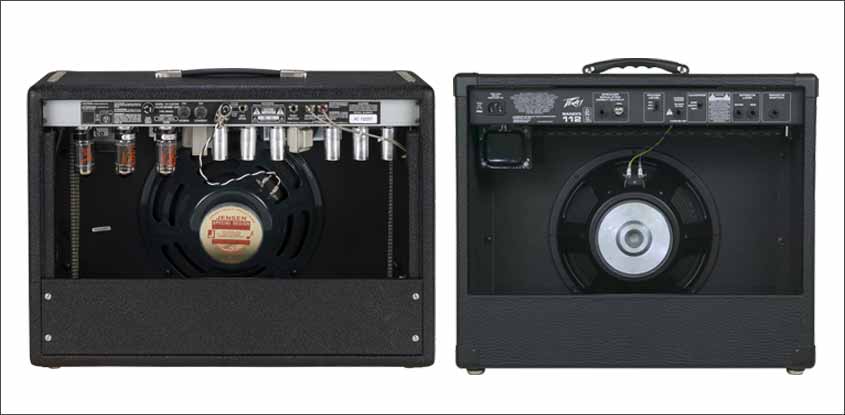What Is a Solid-State Amplifier?
A solid-state amplifier uses transistors to convert an electrical signal into an audio sound. They are relatively cheaper than tube amps. Since the technology used is simpler than their valve counterparts, they are lighter and more portable.
Advantages of Solid State Amps
Solid State amps are more durable
Solid State amps are generally more durable because of their circuitry-based amplification method. Since vacuum tubes are made of glass, there is always an increased possibility that the tube amps can break easily, if not handled carefully.
Solid State amps are less expensive
This may be the biggest advantage of solid state amps, as they usually are considerably less expensive than tube amps.
Solid State amps are more maintenance free
Solid state amps are almost maintenance free than the occasional cleaning. They don’t have replaceable parts like vacuum tubes that burn out.
Solid State amps can have additional sound options
Solid state amp manufacturers have started to integrate additional circuitry in recent years and are adding built-in effects, creating modeling amps. This gives the benefit of not requiring additional effect pedals for your guitar.
Disadvantages Of Solid-State Amplifiers
Solid-state amps are tone-wise not very versatile.
Solid-state cannot handle heavy amp distortion effects very well.
Advantages of Tube Amps
Tube amps are dynamically responsive
Tube amps can generate subtly different tones based on the playing method of each player. The same amp can sound and serve well to different players with varying playing styles. On the other hand, solid state amps are crisper, and don’t translate the nuances of every player very well.
Tube amps deliver decent clean sounds
Tube amps can sound absolutely clean with smooth playing, but also can distort at harder attack by the player. Some players like a crisp clean sound despite of how hard the play and therefore might settle for a solid state.
Disadvantages of Tube Amps
Tube amps require stronger guitar signals
Tube amps need stronger signal levels from the guitar and need to be cranked more to get overdriven sounds.
Tube amps require periodic maintenance
Vacuum tubes will break or burn out over time and they need to be replaced. So, tube amps need more maintenance than solid state amps.
Tube amps are heavier
Tube amps are bulkier and heavier than solid state amps. So, handling and portability can be a problem at times.
Tube amps are more expensive
Due to the technology involved, tube amps are generally more expensive than their solid state counterparts. Even the replacement tubes can be costly too.
Tube or Solid State for me?
It is generally a personal preference. You can decide to go with the tube amps if you can afford it and you are ready to handle and upkeep it well. If you are a home based hobbyist or a small time gigging musician, may be lighter and cheaper solid-state amp will be better for you. But keep the above points in mind before you make a purchase decision. If you require more help or assistance, our expert team at Musicians Corner can always impart you with proper recommendations.



